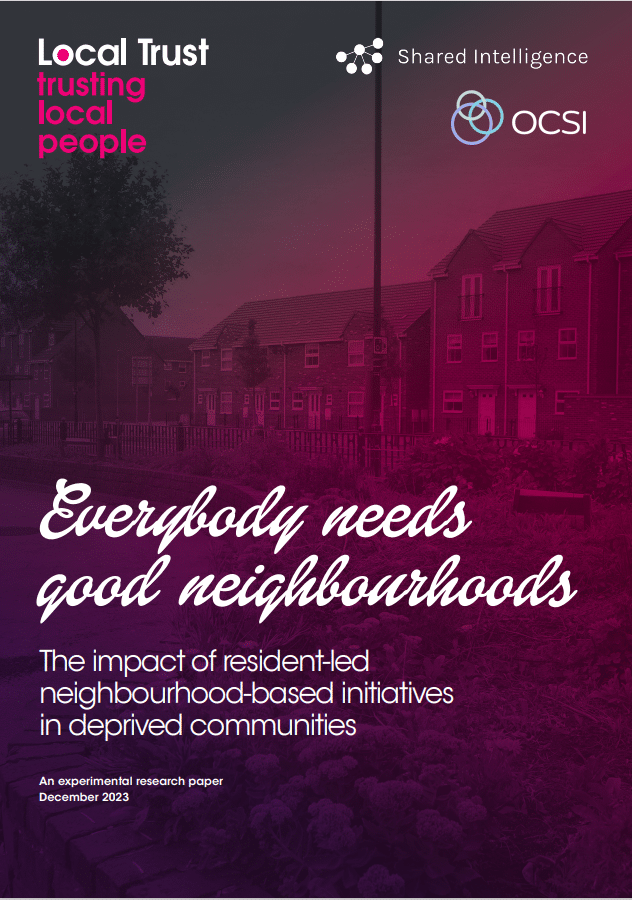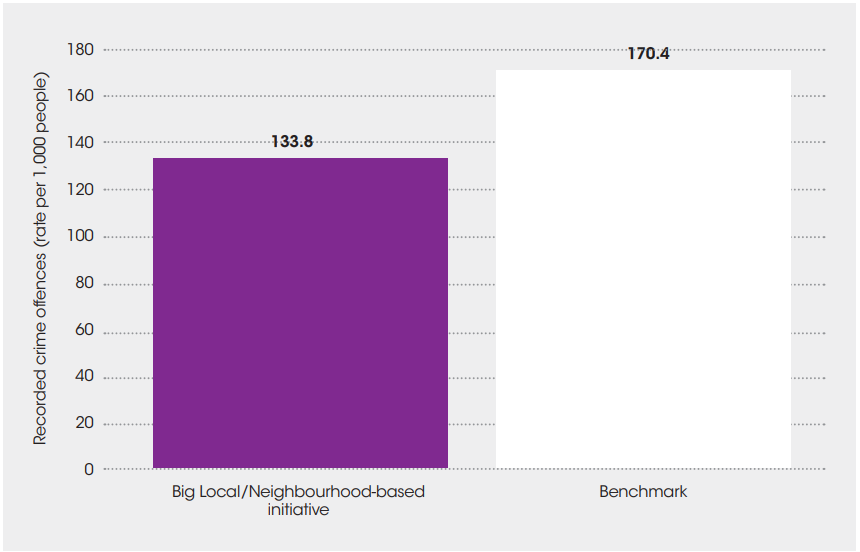
 What is the impact of neighbourhood-based initiatives (NBIs) on community life? Do initiatives led by local residents themselves have a greater positive impact on a local area and the people who live there?
What is the impact of neighbourhood-based initiatives (NBIs) on community life? Do initiatives led by local residents themselves have a greater positive impact on a local area and the people who live there?
Local Trust, Shared Intelligence and OCSI have collaborated on an experimental research paper that aims to assess the effectiveness of NBIs in improving the quality of life and social relationships within communities.
Alongside the report’s exciting full release, we’re taking the opportunity to explain the OCSI research team’s role in how the study was conducted, and the further steps that can be taken to explore the results in the future.
Sometimes known as community-led initiatives, neighbourhood-based initiatives or NBIs are local projects or programs aimed at improving community life – typically focusing on social, economic, and environmental development in specific neighbourhoods.
The research relied on the creation of ‘counterfactuals’, which could be used to benchmark areas with and without NBIs. This began with identifying a set of wards which had some form of neighbourhood-based working, either resident-led or professionally-led, and another set of areas that matched these wards in terms of deprivation levels and socio-economic characteristics – but had no neighbourhood-based working.
These areas were categorised through web-based searches and evidence-gathering phone calls to local elected representatives, council officers, and community organisations.
The research focused on several key indicators and aspects of community well-being to evaluate the impact of NBIs.
Crime and anti-social behaviour: The study looked at the levels of crime, including anti-social behaviour and criminal damage, as these directly affect neighbourhood liveability.
Neighbourhood environment: The physical living conditions of the neighbourhoods were examined, including the number of empty homes and the overall quality of the living environment.
Community need: The team assessed this using the Community Needs Index, developed by OCSI, which identifies areas experiencing social challenges within three themes: civic assets, connectedness, and an active and engaged community.
Self-reported strength of local community and social relationships: For this aspect, the team used data from the Community Life Survey (commissioned by DCMS), which provides a range of data on the extent of volunteering, charitable giving, local actions and more.
Compared to the ‘counterfactual’ areas that had no evidence of neighbourhood-based working, examples of areas with NBIs were found to exhibit:

Total crime offences (rate per 1,000 population): Sep-21 to Aug-22 – Big Local/Neighbourhood-based initiative and Benchmark/Counterfactual areas
As an experimental paper, further research is necessary to expand our understanding of how, and why NBIs (particularly resident-led ones), have a positive impact on deprived neighbourhoods
There are limitations in the experimental design of the study, which have been explored in detail within the report. For example, we cannot conclusively prove that no form of neighbourhood-based working exists for the counterfactual areas; it could just be that the team were unable to find one during their research.
Nevertheless, the initial findings presented here are exciting and clearly flag the need for further research into the positive impact of neighbourhood-based initiatives, locality working, and the role of residents and communities in the stewardship of their local area.
OCSI’s research team is currently engaged in a follow-up piece of work to identify a larger sample size of counterfactuals with which to run the research.
Find out more about our research services
We are proud to have contributed towards the Everybody needs good neighbourhoods…
More
The Community Life Survey (CLS) is an annual survey commissioned by the…
More
We are proud to be working with Wiltshire Community Foundation to provide…
More